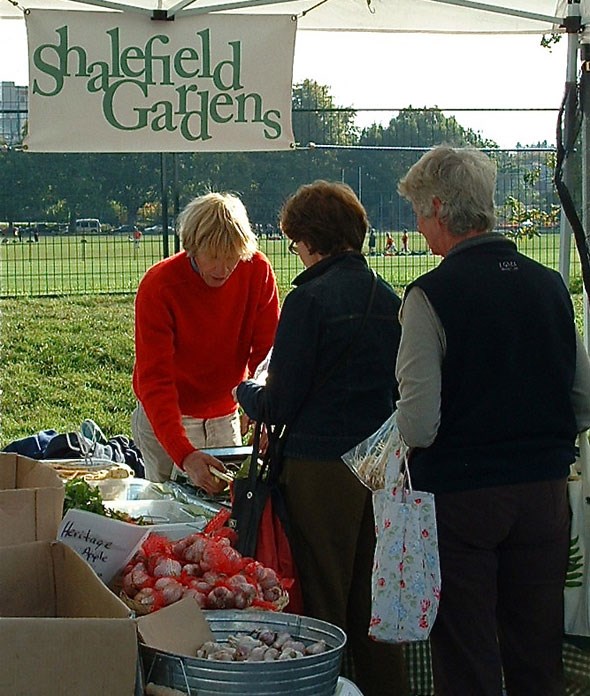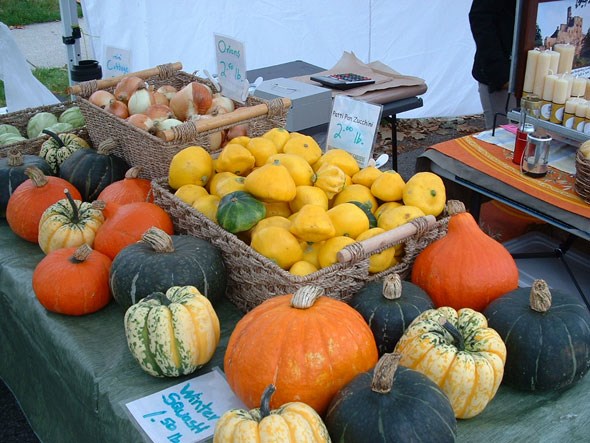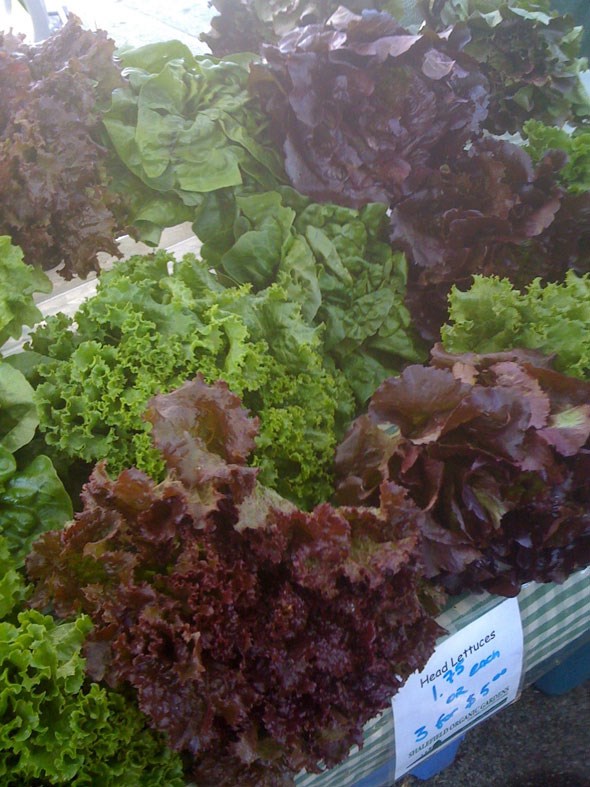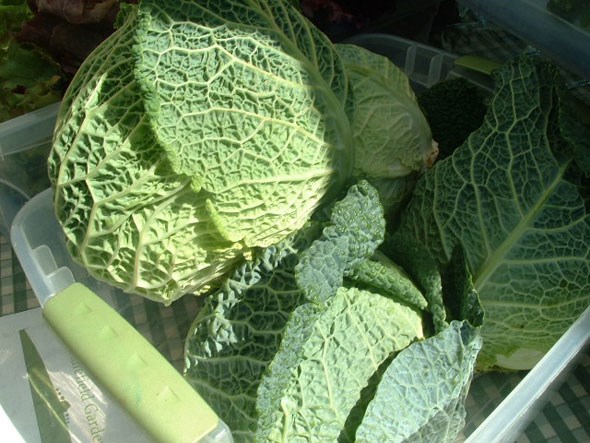| is about people who love fresh food at festive gatherings. With the initial goal in 1995 to create the fun and value of weekly Farmers Markets in urban settings, the Society and the Markets have become Â鶹´«Ă˝Ół»plazas of fun, discovery, and connecting. Each month V.I.A. introduces you to one of the fabulous Market vendors! |
Vendor Profile:
By Kim Peterson
One of the best things about being able to shop at a farmers’ market is the diversity. Diversity in not only the kinds of fruit, vegetables, meat and prepared foods you can find, but in the people and families that work hard to bring that food to market. There are a thousand ways to be an independent farmer, and probably just as many ways to integrate personal philosophies and values into producing food.

What sets Brian Patterson and Yolanda Versterre of Shalefield Organic Gardens apart is their holistic approach to farming by incorporating biodynamic principles into their 4-acre farm near Cultus Lake.
“You have to feed the farm as a whole system,” says Yolanda. “With organic farming you’re still allowed to use certain chemicals... we don’t use any.” Chemicals are off the menu entirely, replaced by an earthy cocktail of compost-based fertilizers that promote a self-sustaining system of recycled nutrients and prevent common issues like fungal growth on healthy plants.

“Biodynamics” is a buzzword that’s been making the rounds for a few years, but the practice has been around since the 1920s. There are farmers all over the world who swear and live by this set of unconventional methods introduced by Austrian philosopher Rudolf Steiner. One includes stuffing cow horns with powdered quartz or manure and burying them in the ground, only to unearth them in the spring. Over the winter, the surrounding soil transforms into nutrient rich humus, which is then mixed with water and sprayed over crops as an organic fertilizer.
Yolanda and Brian have been farming biodynamically year-round since 2008, and are becoming well-known for their salad greens they had available over the winter. “At one point we were the only ones with fresh salad greens,” says Yolanda. “We would like to be able to grow more, a whole winter, that’s our goal, to produce local greens all winter.”

To achieve this “season extension”, they’ve installed unheated, moveable greenhouses on the farm. In the spring, their tomatoes receive shelter, meanwhile, winter crops will be in the soil by the end of summer. “When the tomatoes are done, you move the greenhouse over the winter vegetables so they don’t get affected by the frost and the cold.”
Like many local farms, Shalefield is offering CSA shares, though instead of providing a weekly box of produce for customers, participants will receive credit, which can be used at any point throughout the year. Yolanda says the program was a great success last year, and especially convenient for people who aren’t sure they can keep up with a regularly scheduled delivery of fresh produce.
“People are going on vacation during the summer, going away and you have a box that comes every week. With the market share you don’t have to worry.”

Shalefield will be at every Â鶹´«Ă˝Ół»Farmers’ Market throughout the summer, including the first of the season: May 12 at Trout Lake Park in East Vancouver.


